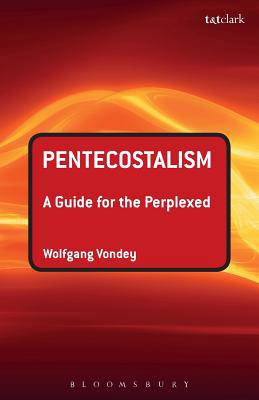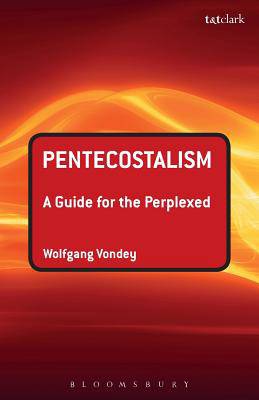
Bedankt voor het vertrouwen het afgelopen jaar! Om jou te bedanken bieden we GRATIS verzending (in België) aan op alles gedurende de hele maand januari.
- Afhalen na 1 uur in een winkel met voorraad
- In januari gratis thuislevering in België
- Ruim aanbod met 7 miljoen producten
Bedankt voor het vertrouwen het afgelopen jaar! Om jou te bedanken bieden we GRATIS verzending (in België) aan op alles gedurende de hele maand januari.
- Afhalen na 1 uur in een winkel met voorraad
- In januari gratis thuislevering in België
- Ruim aanbod met 7 miljoen producten
Zoeken
Omschrijving
Pentecostalism is the fastest growing religious movement of our time. The unexpected birth of the modern-day Pentecostal movement at the doorsteps of the twentieth century is as perplexing as its continuing existence and unprecedented expansion worldwide. Once marginalized from public discourse, Pentecostals have entered into mainstream culture, religion, politics, academia, and social action. However, the unprecedented growth of Pentecostalism in all its diversity has led to characterizations ripe with platitudes, stereotypes, and misrepresentations. This Guide for the Perplexed sheds light on the most persistent contrasts characterizing the Pentecostal movement: the tension between local manifestations and global Pentecostalism, the inconsistency between spiritual discernment and charismatic excess, the gap between rampant denominationalism and the pursuit of Christian unity, the disparity between poverty among many Pentecostals and the popularity of the prosperity gospel, the division between Oneness Pentecostals and their trinitarian counterparts, and the worldview of Pentecostals beyond the confines of a religious movement. Those tensions form the essence of global Pentecostalism and represent the emergence of a global Christian world.
Specificaties
Betrokkenen
- Auteur(s):
- Uitgeverij:
Inhoud
- Aantal bladzijden:
- 176
- Taal:
- Engels
- Reeks:
Eigenschappen
- Productcode (EAN):
- 9780567522269
- Verschijningsdatum:
- 31/01/2013
- Uitvoering:
- Paperback
- Formaat:
- Trade paperback (VS)
- Afmetingen:
- 137 mm x 213 mm
- Gewicht:
- 281 g

Alleen bij Standaard Boekhandel
+ 118 punten op je klantenkaart van Standaard Boekhandel
Beoordelingen
We publiceren alleen reviews die voldoen aan de voorwaarden voor reviews. Bekijk onze voorwaarden voor reviews.









